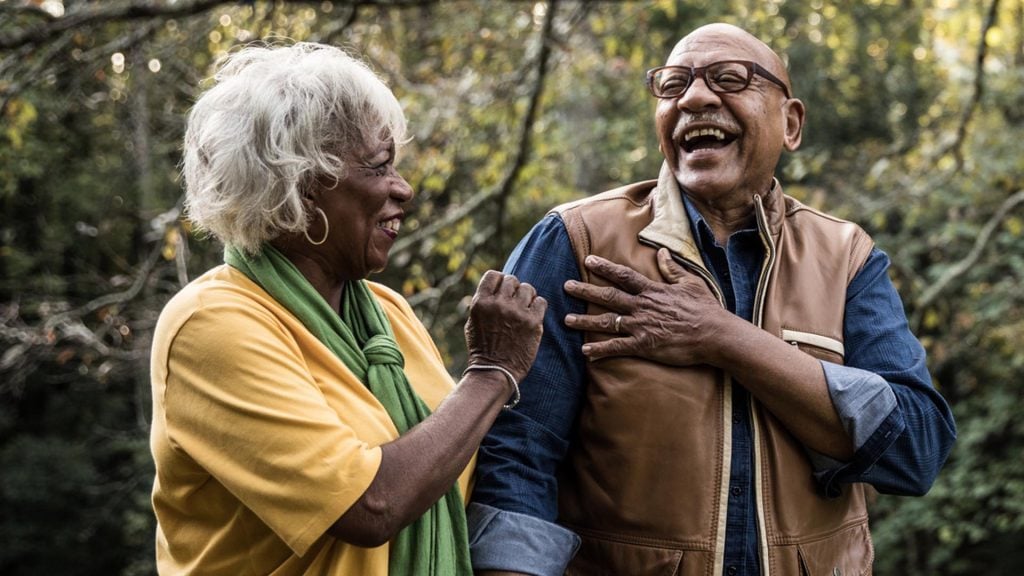
‘Silver Singles’ set to transform online dating by 2050
By 2050 the average age of an online dater will reach 47, up from 38 in the present day due to a new wave of ‘silver singles’ joining dating and matchmaking platforms. This is according to the Future of Dating: 2050 report, commissioned by eharmony and compiled by MSc Management students at Imperial College Business School.
The research unveils predictions on what online dating and relationships will be like in 2050 based on analysis of decades of data looking at society, health and demographics.

47
the age of the average online dater by 2050, up from 38 in the present day
Greater expectations
A key factor in the rising average age of an online dater will be increased life expectancies, which mean that by 2050 nearly a quarter of the population will be over 60, compared to around 15% today. What’s more, an incredible 8.1m people will be within the 80-100+ bracket.
The biggest increase in online dating will therefore come from those aged 65 to 85 and it is predicted that, by 2050, 78% of those in this age group will date online. Having grown up with technology, the silver daters of the future will be far more comfortable online than previous generations. As medical technology heads towards seemingly sci-fi operations like medical 3D printing and a range of new applications of genomics, many over 65s will also be fitter and healthier than ever before.

Changing styles of relationships
Meanwhile, more liberal social norms mean singles of the future are expected to have four key relationships in a lifetime, as opposed to one or two marriages as commonly seen today. Additionally, non-traditional or polyamorous relationships may become more commonplace, to ‘give oxygen’ to monogamous relationships. Sociologists argue this could reduce the pressures of binding commitment.
According to the report, singles aged 35 to 65 will remain the most prolific group of online daters overall – with 86% searching for love online compared with 24% today. What’s more, advances in fertility technology indicate 13% of all new mothers will be 40+ come 2050, compared to 4% now.

Struggles for younger daters?
The report suggests the most challenged demographic when it comes to dating and relationships will be the youngest, 18 to 35-year-olds. Whereas today 42% of all online daters fit into this age bracket, this could decrease to 30% by 2050.
This is primarily due to economic pressures impacting on lifestyles. For instance, nearly one in three 18 to 30-year-olds will live with their parents in 2050, compared with a quarter today, due to wage stagnation and the increased cost of living. Younger singles will have less financial independence and less opportunity to develop more intimate relationships.
As a result, this generation could look to virtual and augmented Reality dating experiences to supplement face-to-face dating and relationships. However, having grown up in a world where AI and VR are the norm, there will inevitably be key psychological challenges for younger generations graduating to innately human relationships. This means more premium dating platforms such as eharmony could start offering specialist coaching to improve their romantic confidence and relationship skills.

1 in 3
18 to 30-year-olds will live in their parents homes in 2050
Future inclusivity
On the plus side, we’re likely to see a more integrated, inclusive country than ever across all generations. The mixed-ethnicity population in the UK is projected to almost triple from 1.3m to 3.4m in 2050. Furthermore, continuing shifts in morality mean that as much as 70% of the population is set to be non-religious come 2050, suggesting the opportunity for more shared spiritual values.
Ultimately, the most important thing is thinking about how love will endure and how the way we find relationships and build human intimacy in an increasingly tech-driven environment will change. We know that regardless of how society changes, people will want to meet people who share their beliefs, core values and key personality characteristics and at eharmony we very much intend to continue leading the way.